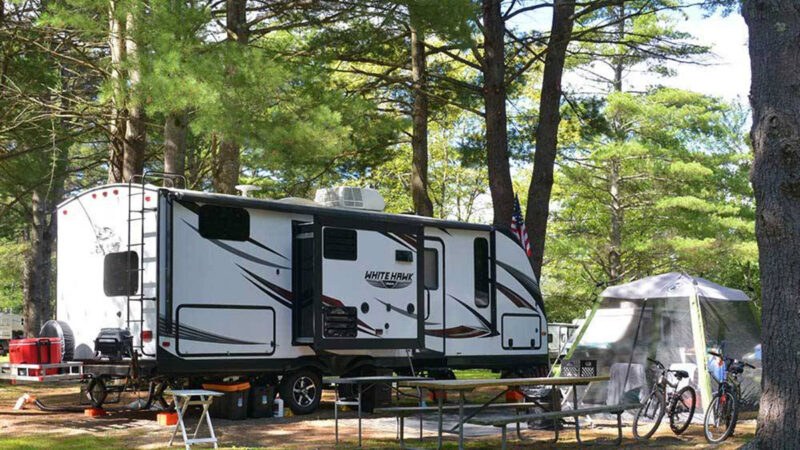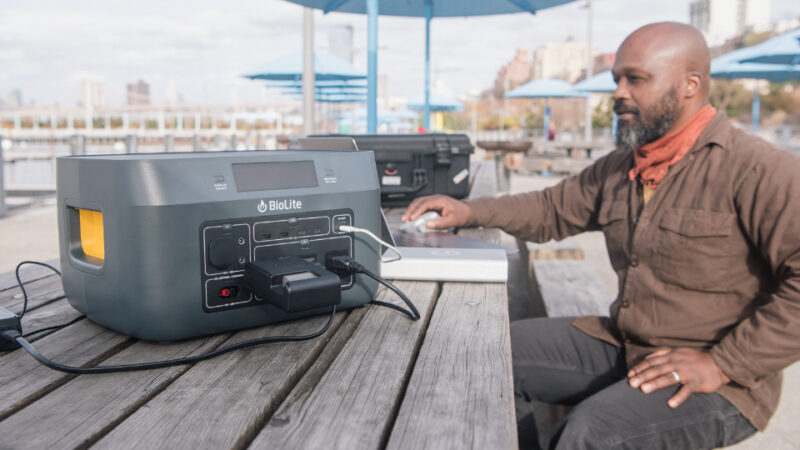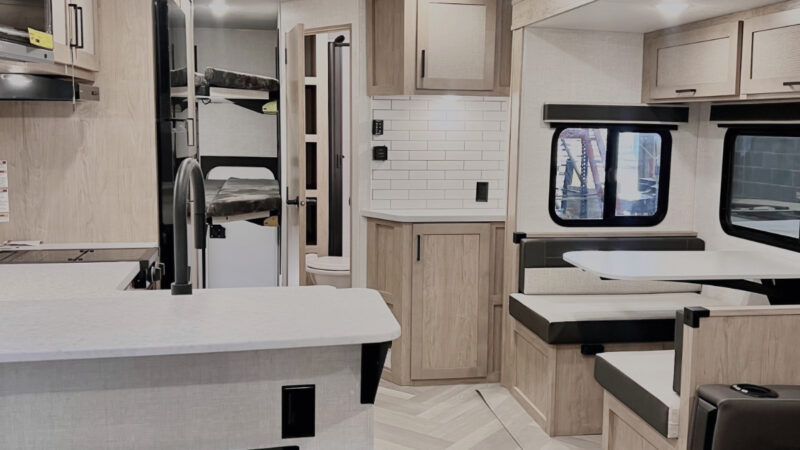Amazon’s Project Kuiper Promises Faster Satellite Internet at the Campsite
Starlink satellite internet service has been a revelation for some RVers, delivering a reliable high-speed connection just about anywhere they want to park their rigs. But the SpaceX-owned company may soon face stiff competition from Amazon, which has quietly been prepping a similar service that is potentially faster and more affordable.
Amazon’s foray into satellite internet is dubbed Project Kuiper. Much like Starlink, the service will utilize a constellation of small, fast-moving communications satellites parked in low Earth orbit. Those devices connect to high-speed antennas and fiber optic cables on the ground, creating a low-latency network with plenty of bandwidth. And since the satellite receiver—or terminal—is relatively small and mobile, subscribers can take it with them when traveling.
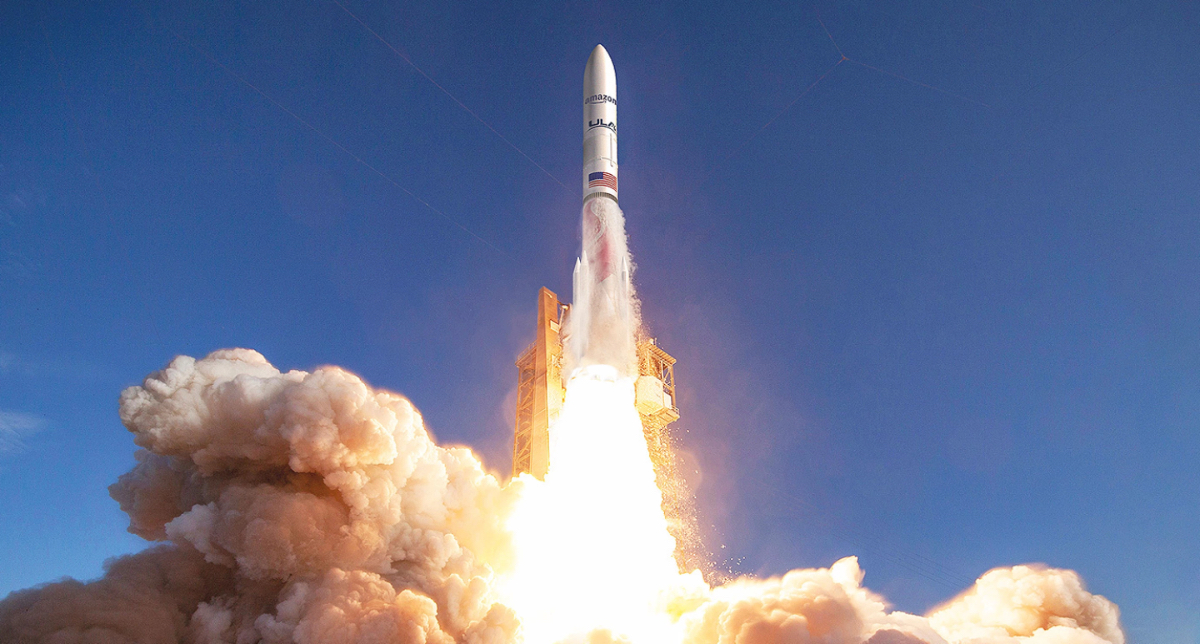
Photo Credit: Amazon/Project Kuiper
If all goes as planned, Project Kuiper will officially get off the ground in early May. That’s when the first satellites are scheduled to launch into orbit. Those initial devices will be used to test and optimize the system before the network expands later this year and in early 2024. Amazon expects to begin offering service to customers sometime next year.
At a press conference held last month, Amazon revealed its satellite terminals for the first time. The square-shaped receivers resemble those used by Starlink, although they are smaller and lighter. That should make them easier to install and transport. The devices promise to be faster and easier to set up as well.
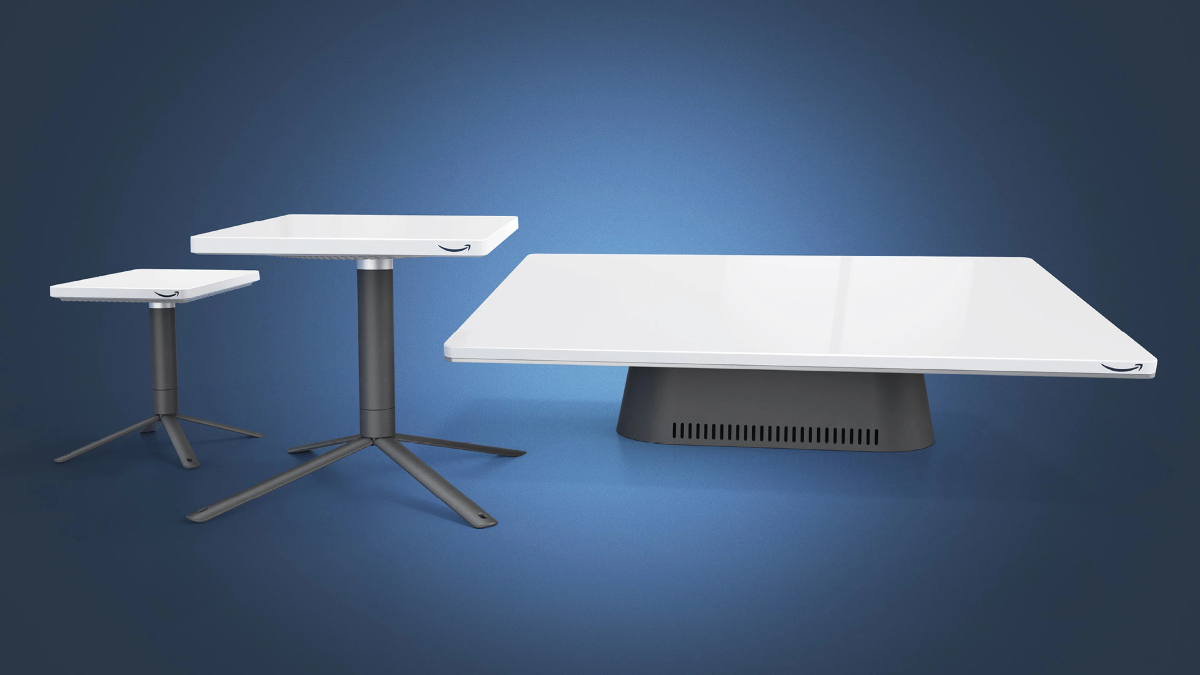
Photo Credit: Amazon/Project Kuiper
The standard Project Kuiper terminal measures roughly 11″ on a side and weighs about 5 pounds. That model is designed for use in homes and small business and supports speeds up to 400 megabits per second (Mbps). A high-speed terminal—measuring 19″ x 30″—was also unveiled. That model is aimed at commercial clients and offers speeds of up to 1 gigabit per second. Alternatively, Amazon will also offer an ultra-compact terminal with a 7″ x 7″ receiver that is about the size of a small tablet. It produces speeds of up to 100 Mbps and should be highly portable.
By comparison, the current Starlink terminal is 20.2″ x 11.9″ and weighs 9.2 pounds. Depending on location and service plan, it offers speeds between 50-500 Mbps. That said, the company has filed an application with the FCC to begin selling a smaller model, although it remains unclear when it will be available. That new Starlink terminal will be 11.4″ x 9.8″ in size, putting it more in line with the Project Kuiper offerings.
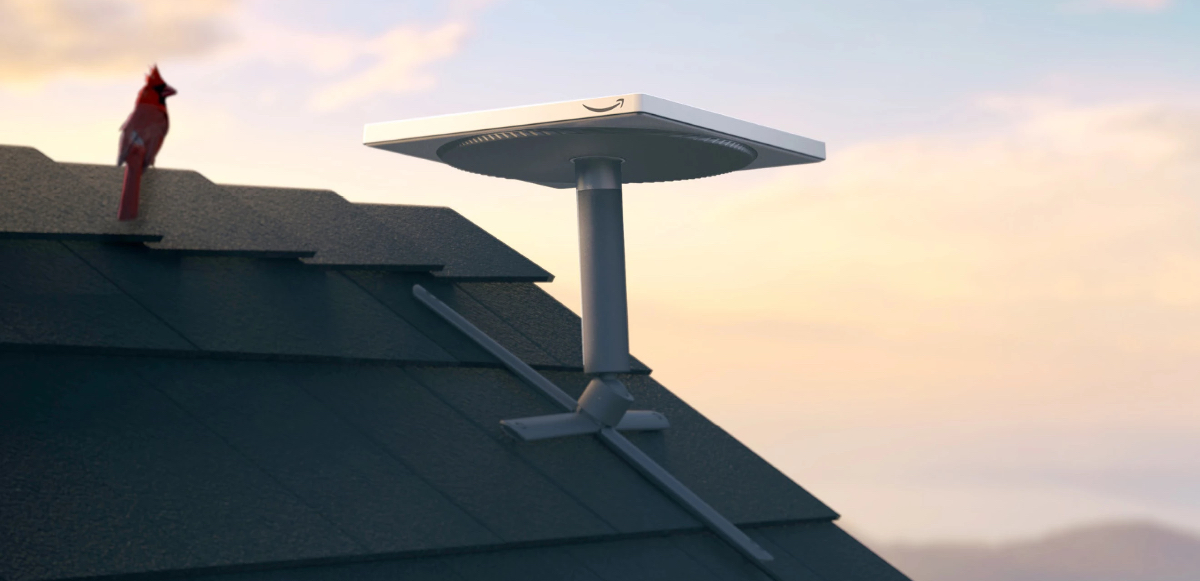
Photo Credit: Amazon/Project Kuiper
Amazon hasn’t revealed pricing for its service or equipment yet but indicates that the standard terminal costs less than $400 to produce. According to the Project Kuiper FAQ, the company is committed to keeping the hardware price as low as possible to make it accessible to more people. Starlink currently charges a one-time equipment fee of $599.
One advantage that Starlink has over its future competitor is that it is already certified for use in moving vehicles. Some RV manufacturers have even started integrating the company’s satellite terminals into their vehicle designs, making it a factory-installed option for customers. Project Kuiper will have to undergo a regulatory process before it receives the same certification, which will take additional months after its initial launch.
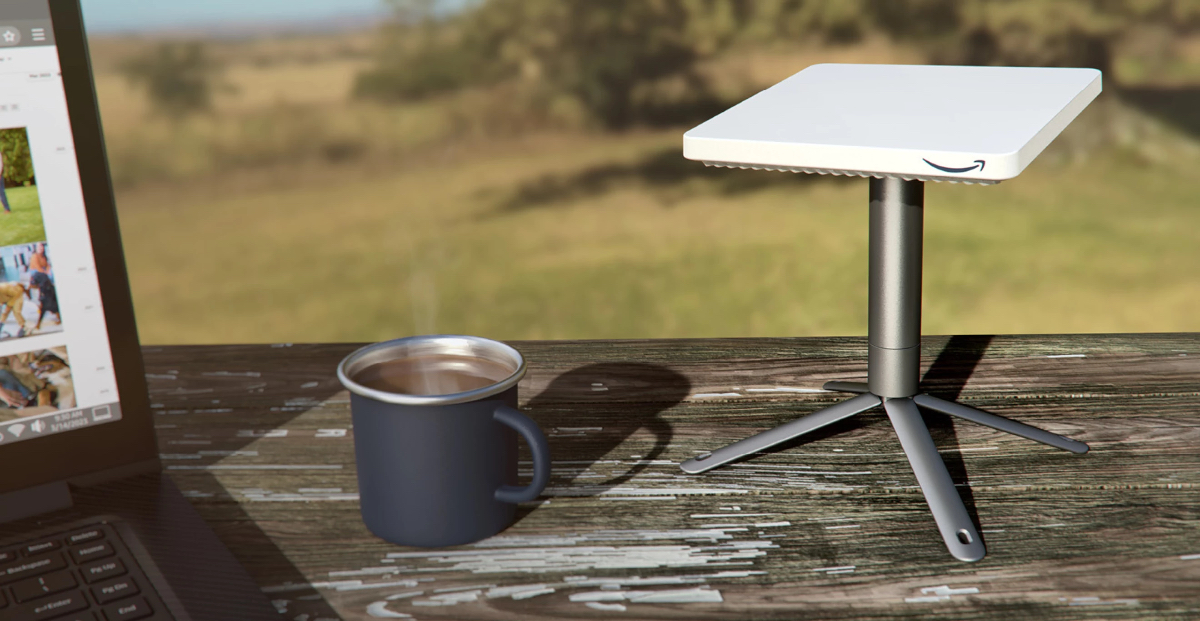
Photo Credit: Amazon/Project Kuiper
Starlink’s other advantage is that it is already up and operational. The company knows firsthand how challenging it can be to launch satellites and operate an internet service of this kind. Project Kuiper has yet to go through that process, which can often be marred by delays, technical setbacks, and cost overruns.
Still, Amazon is highly focused on getting Project Kuiper up and running. Eventually, it hopes to offer the service at an affordable price in all corners of the globe. If it can achieve that goal, it will bring actual competition to the satellite internet market, potentially reducing costs and improving service.
For more information and to sign up for updates on the service, visit the Project Kuiper website.
The post Amazon’s Project Kuiper Promises Faster Satellite Internet at the Campsite appeared first on RV.com.

